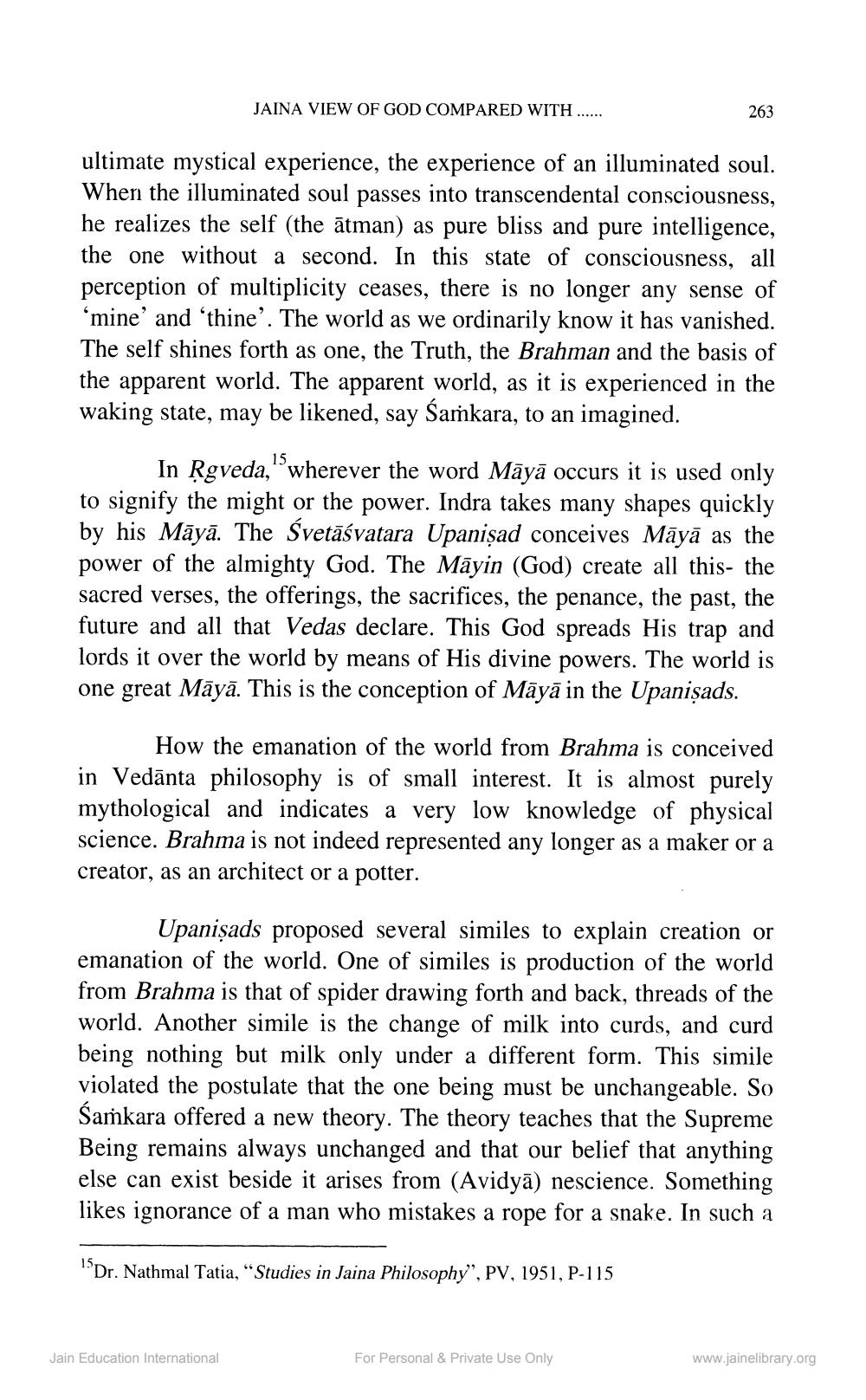________________
JAINA VIEW OF GOD COMPARED WITH .....
263
ultimate mystical experience, the experience of an illuminated soul. When the illuminated soul passes into transcendental consciousness, he realizes the self (the ātman) as pure bliss and pure intelligence, the one without a second. In this state of consciousness, all perception of multiplicity ceases, there is no longer any sense of ‘mine' and 'thine'. The world as we ordinarily know it has vanished. The self shines forth as one, the Truth, the Brahman and the basis of the apparent world. The apparent world, as it is experienced in the waking state, may be likened, say Samkara, to an imagined.
In Rgveda," wherever the word Māyā occurs it is used only to signify the might or the power. Indra takes many shapes quickly by his Māyā. The Svetāśvatara Upanişad conceives Māyā as the power of the almighty God. The Māyin (God) create all this- the sacred verses, the offerings, the sacrifices, the penance, the past, the future and all that Vedas declare. This God spreads His trap and lords it over the world by means of His divine powers. The world is one great Māyā. This is the conception of Māyā in the Upanişads.
How the emanation of the world from Brahma is conceived in Vedānta philosophy is of small interest. It is almost purely mythological and indicates a very low knowledge of physical science. Brahma is not indeed represented any longer as a maker or a creator, as an architect or a potter.
Upanişads proposed several similes to explain creation or emanation of the world. One of similes is production of the world from Brahma is that of spider drawing forth and back, threads of the world. Another simile is the change of milk into curds, and curd being nothing but milk only under a different form. This simile violated the postulate that the one being must be unchangeable. So Šamkara offered a new theory. The theory teaches that the Supreme Being remains always unchanged and that our belief that anything else can exist beside it arises from (Avidyā) nescience. Something likes ignorance of a man who mistakes a rope for a snake. In such a
Dr. Nathmal Tatia, "Studies in Jaina Philosophy”, PV, 1951, P-115
Jain Education International
For Personal & Private Use Only
www.jainelibrary.org




